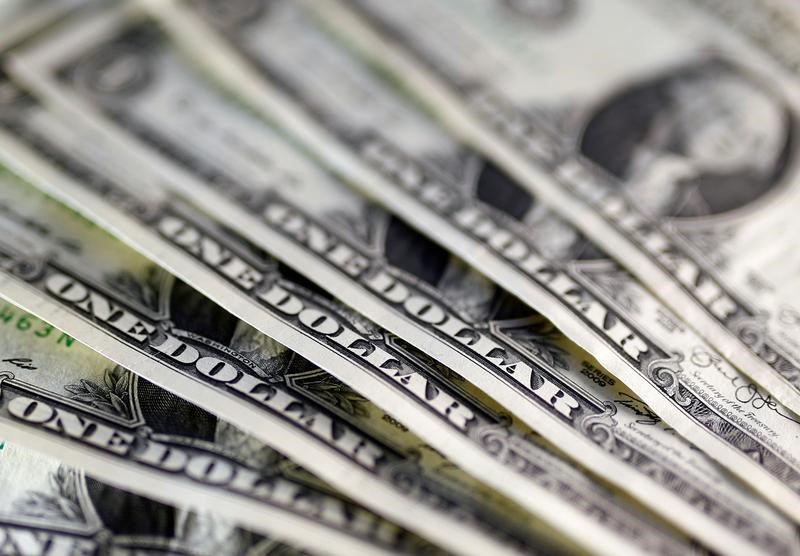TOKYO (Reuters) - The dollar nursed losses on Friday, on track for a losing week as continuing tensions in North Korea underpinned the perceived safe-haven Japanese currency.
The dollar index, which tracks the U.S. unit against a basket of six rival currencies, steadied at 100.590 (DXY), slightly higher on the day but down 0.6 percent for the week.
U.S. President Donald Trump said on Thursday that North Korea is a problem that "will be taken care of," as China urged caution and speculation rose that Pyongyang might be on the verge of a sixth nuclear test. The Pentagon declined to comment on an NBC report about possible pre-emptive action against the rogue state.
The dollar rose 0.8 percent against the South Korean won
In another part of the world, the U.S. military said on Thursday that it dropped "the mother of all bombs," the largest non-nuclear device it has ever unleashed in combat, on a network of caves and tunnels used by Islamic State in eastern Afghanistan.
"The 'mother of all bombs' was intended to show the power of U.S. forces to North Korea," said Kaneo Ogino, director at foreign exchange research firm Global-info Co in Tokyo.
"But maybe we won't see big market moves today, because the short-term players already have put on short-dollar positions, and now everyone is just waiting for the next trigger," he said.
The dollar edged up 0.1 percent on the day to 109.15 yen
Market liquidity was thinner than usual because of this week's Passover and Good Friday holiday observances around the world. The market for U.S. Treasuries finished trading early on Thursday, and will be closed Friday.
The benchmark U.S. Treasury yield skidded to its lowest levels since November on Thursday, after Trump said in a Wall Street Journal interview published late Wednesday that he favoured low interest rates. He also said the dollar was "getting too strong" and would eventually hurt the U.S. economy. [US/]
"Yields declined, and we're seeing a softening of the dollar," said Bill Northey, chief investment officer at the private client group of U.S. Bank in Helena, Montana.
"It's unique to see that level of focus coming from the White House on economic topics that haven't usually been the purview of the administration," he said, explaining why markets continued to focus on Trump's remarks.
Trump also said his administration will not label China a currency manipulator in the Treasury Department's semi-annual report on currency practices of major trading partners which is due out on Friday, backing away from a campaign promise.
The move was seen as a possible quid pro quo, suggesting it might make Beijing more inclined to help resolve the escalating row with North Korea.
"We have some U.S. economic data later in the day, which ordinarily would likely have some affect on U.S. yields and the dollar, but with U.S. bond markets closed, it might not have much impact," said Ayako Sera, senior market economist at Sumitomo Mitsui Trust.
U.S. retail sales for March are expected to come in at a seven-month low of zero after edging up just 0.1 percent in February. [ECONOMUS]
The euro was steady on the day at $1.0611

Against the yen, the euro slumped as low as 115.72 (EURJPY=) on Thursday, its lowest level since November, and was poised to drop 1.5 percent for the week. It last stood at 115.85 yen, up 0.1 percent.